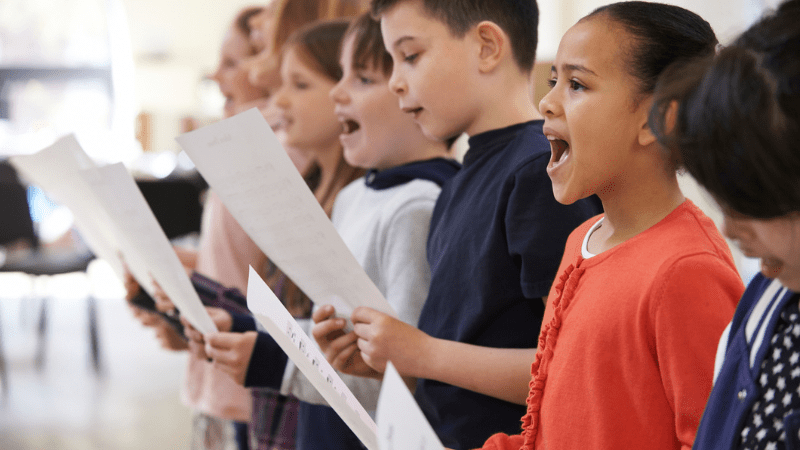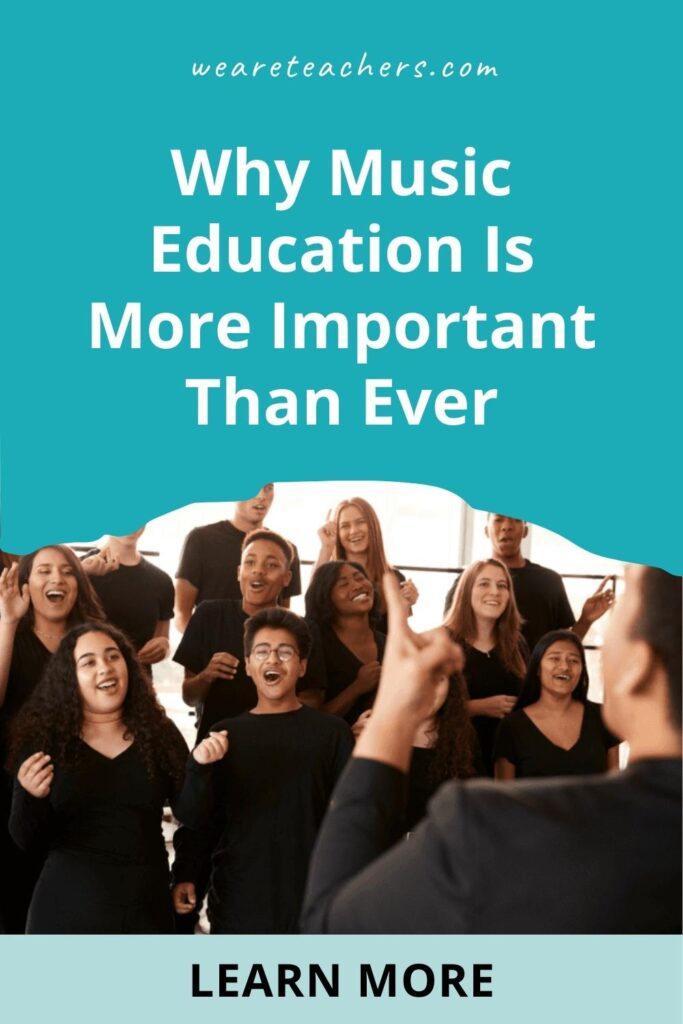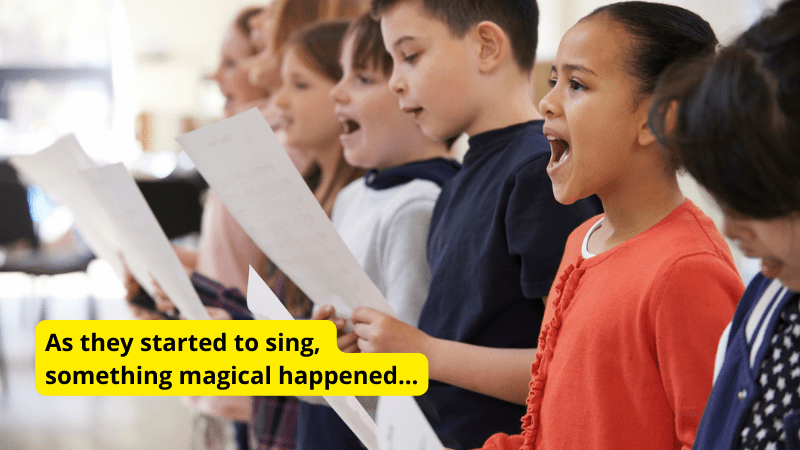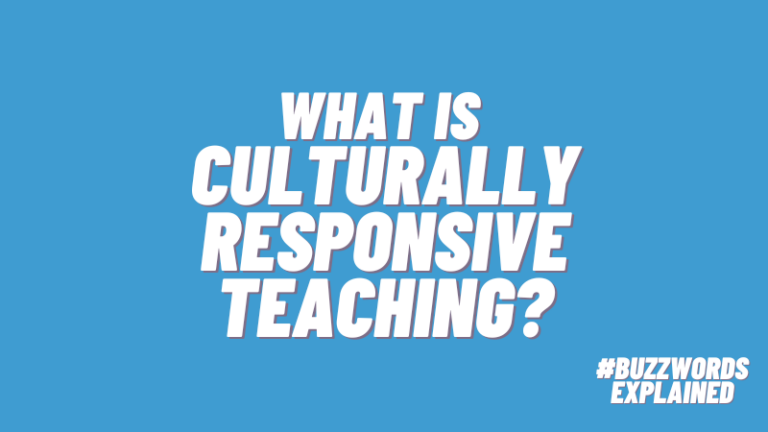Kindergartners singing a special song to learn about nouns. The sound of recorders drifting down the school hallway. The high school choir singing the school alma mater at graduation. As teachers, we know how central music is to what we do—and now it’s more important than ever.
Music creates magic

As a music education teacher, I was overjoyed when my school was able to begin the year with our traditional back-to-school assembly for the first time in two years. Each year our school picks a “theme song.” Our fifth graders perform it at this assembly. Maybe it’s cheesy, but I love it. This year, as the soloists took turns leading a call-and-response to this year’s song, “It’s All Right,” something magical happened. The students in the audience all clamored to participate. From kindergartners to fifth graders, they craned their necks for better views and sang out to ensure their voices were heard. This was collaboration and teamwork. This was trust and respect. It was everything our administrators had just spent our summer professional development days telling us our students lacked and desperately needed our help in rediscovering.
Music education is trauma-informed education

The past few years have seen “trauma-informed teaching strategies” quickly become one of the most popular phrases in educational circles, and with good reason. However, we should take a moment to note the important role music education has always played in helping students cope with trauma. Research has long shown the positive connections between listening to and playing music and the ability of children to regulate their emotions. It also creates more welcoming, calming learning environments, boosting students’ learning in the classroom. Furthermore, studies indicate that music education boosts students’ problem-solving, vocabulary, and reading comprehension skills, which will help to alleviate some of our students’ difficulties in communicating with their peers. As we seek answers for the emotional, behavioral, and academic concerns in our classrooms, we can’t forget what already works: music education.
Music teaches SEL skills

While you might not realize it right away, music teachers have been implementing well-established SEL practices for many, many years. Music education programs, be they schoolwide music classes or performance-based electives like band, chorus, and orchestra:
- Teach and reinforce the importance of effective communication and collaboration.
- Respect and highlight different cultures and socioeconomic environments.
- Provide opportunities for visible improvement and growth.
- Foster feelings of accomplishment and achievement.
- Promotes responsible risk-taking as students prepare for and perform in front of audiences.
- Recognize the need for student leaders and develop those skills in students of all background and ability levels.
- Support intrinsically motivating practices that teach commitment and perseverance.
Music isn’t just an elective or “special” anymore

Playing an instrument or participating in a music class are not the only ways music can help our students. Music can be a highly effective tool in trauma-informed teaching strategies in every classroom. Teachers can use music to:
- Create welcoming, safe environments for students as they enter the classroom.
- Ease stress caused by periods of transition from one activity to the next.
- Serve as an auditory signal for appropriate amounts of processing time, collaboration, or brainstorming.
- Increase student buy-in and engagement by tying it to current curriculum.
- Assist students who are struggling with anxiety or stress.
Making music education a priority

As administrators and teachers reimagine what school needs to look like moving forward, music education must play a critical role. One of the ways that we can support this is by properly funding our music classrooms and school performance spaces. Easier said than done, right? But actually, now is the perfect time to secure funding for these programs. In 2020, the U.S. Congress created the Elementary and Secondary School Emergency Relief (ESSER) Fund to address learning loss caused by the pandemic. Music and performing arts classrooms can apply for money to purchase supplies and resources.
While applications and approaches may differ, the social and emotional benefits of music are universal and irrefutable. As we work to repair the damage caused by the past few years, the need for evidence-based strategies is more important than ever. Let’s ensure that we harness the amazing power of music education to help our students as we move forward.


